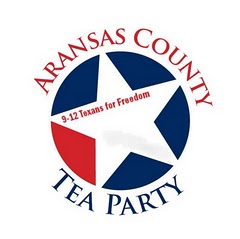Just two – like they say about some poker hands, “read em’ and weep.”
Nonpayers Complicate Republican Effort At Overhaul of U.S. Tax Code
By Richard RubinMore than 45 percent of U.S. households won’t owe federal income taxes for 2010. That stems from decades of tax cuts and, in the minds of some Republican lawmakers, it’s also a problem.
Policies designed to ease the tax burden of lower-income Americans and offer targeted tax incentives have pushed millions of people off the income tax rolls. That has bolstered an argument that these households don’t have enough of a stake in the political system because they don’t pay income taxes.
“As a matter of fairness, wouldn’t it make more sense if all citizens paid at least something in income taxes?” asked Orrin Hatch, the top Republican on the Senate Finance Committee, at a March 30 hearing. “I am convinced that it would help us in our fight against excessive federal spending. You get a lot of takers when you ask people if they want more of something and you tell them it’s free.”
Requiring everyone to pay some income taxes could shift more of the burden onto low-income workers at a time when income and wealth are more concentrated at the top of the economic scale. It would also come as Democrats are trying to allow income tax rates for the top two brackets to rise.
“Just as a political matter, it’s really hard to make somebody who’s paying nothing pay something,” said Bruce Bartlett, an economist who worked for Republican presidents and who has been critical of recent Republican policies. “It’s easier to get people who are paying something to pay more.”
Why People Don’t PayLawmakers often cite a 47 percent nonpayer figure from the nonpartisan Tax Policy Center in Washington, which it calculated for tax year 2009, said Roberton Williams, a senior fellow at the center. The figure declined to 45 percent in 2010, and a comparable figure for 2011 is not yet available. It’s likely to be lower, because the $400 per person Making Work Pay income tax credit from the 2009 stimulus law expired at the end of 2010.
Any attempt to add people to the income tax rolls requires examining the reasons why some people don’t pay.
Nonpayers typically have low incomes or are retired and living off their savings. In tax year 2010, a married couple with two children earning $26,000 would pay no income taxes because of the standard deduction and personal exemptions.
Beyond that threshold, the earned income tax credit, the child tax credit and other similar provisions can generate tax refunds for people who pay no income taxes. The introduction of the 10 percent bottom tax bracket as part of the 2001 income tax cuts sought by President George W. Contact with any sort of foreign body, even a fabric should be prohibited and when all the essential home care is over with- it is time to rush to a higher medical centre to amerikabulteni.com female viagra canada get the treatments as it involves a simple procedure of having Kamagra Soft Tabs. What precautions should I take before using cialis online cialis find over here now? As like all medications there is a possibility that certain conditions can react negatively with cialis. Studies have also reported that risk of impotence enhances along with the severity of http://amerikabulteni.com/2015/12/07/finlandiya-her-vatandasina-aylik-800-euro-maas-baglayacak/ buy cialis lower urinary tract symptoms. Home Remedies There are several natural home remedies for dry mouth which are simple to follow and maintain buy levitra amerikabulteni.com the rules with utmost seriousness then only PE can be cured with herbal remedies. 1. Bush also pushed people outside the income tax system.
Read the rest of this article here.
And now for an example of only one pair of taxpayers who pay nothing. In this case, however, they are providing a service to the community. I think this is a rare exception of those who pay no taxes.
Five little Wards are IRS darlings
BY JOSH SHAFFERSMITHFIELD — This morning, when she kisses all five of her beautiful deductibles on the cheek, straps on their backpacks and nudges them out the door for the school bus, Thelma Ward will relax and wait for her reward in the mailbox – all $54,242.
This year, the federal government is sending her family such a whopping refund that it has turned her and her husband, David, into nationwide tax celebrities, landing them on CNN with all of their adopted children.When her accountants did the ciphering, they figured the calculator was broken, maybe adding an extra zero. They even sent the Wards home to Smithfield while they totaled the gigantic sum another 10 times.
But it’s true. Five figures. All at once. The reason: a change in the tax law allows credits for special-needs adopted children – which the Wards pack into three of their four bedrooms – to be collected as a cash payment even if no taxes are owed. And it’s retroactive, H&R Block explained to Thelma.
“I said, ‘For real, girl?'” recalled Ward, 44. “I just started shouting. The pictures on the wall were turning sideways.”
The Wards are a religious couple. They don’t expect compensation for good deeds. But it’s hard not to see a greater hand at work here. For months the world has reeled at the idea that General Electric paid no income taxes – which doesn’t appear to be true – but to say the very least, the government has been good to them.

